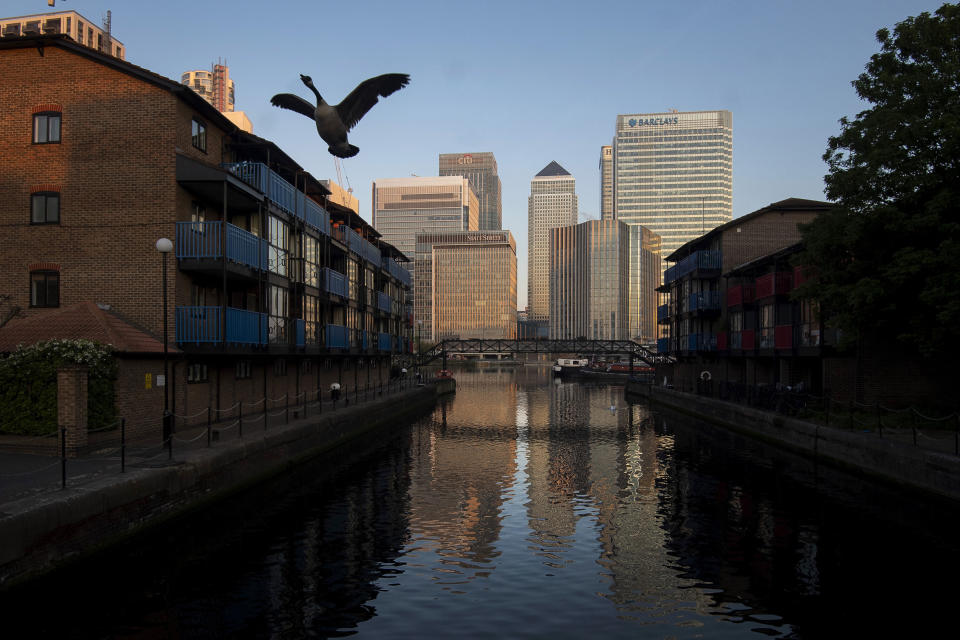Coronavirus: UK services sector 'emerges from the shadows' as lockdown eases

The UK services sector “emerged tentatively from the shadows” in June, with data continuing to indicate an economic turnaround as the country emerges from the coronavirus lockdown.
A closely watched survey by IHS Markit found that the sector’s purchasing managers’ index (PMI) reading came in at 47.1 in June, up from 29.0 in May and sharply higher than the all-time record low of 13.4 in April.
The services sector is hugely important to the UK economy — it includes finance, law, retail, engineering and consulting — and makes up about 45% of the country’s exports.
PMIs are an indicator of private sector activity and are given on a scale of 1 to 100. Anything above 50 signals growth. Because anything below 50 signals a decline, the figure indicates that the sector contracted once again in June, even if the pace was slower than that seen in previous months.
The headline reading was the highest in four months and came in slightly ahead of analyst expectations.
READ MORE: ‘Green recovery’ risks voter backlash unless it boosts households and jobs
Respondents noted that the easing of lockdown measures and the subsequent reopening of the UK economy had a favourable impact on business activity, IHS Markit said.
“A cessation in some lockdown policies enabled the services sector to emerge tentatively from the shadows last month and reclaim some normality,” said Duncan Brock of the Chartered Institute of Procurement and Supply.
Around 33% of respondents said that they experienced a drop in business activity in June, however. Some 28% signalled that they had seen an expansion.
Firms also continued to report “highly subdued demand and disruptions” related to the coronavirus pandemic, IHS Markit noted.
“June data highlights that the worst phase of the service sector downturn has passed as more businesses start to reopen and adapt their operations to meet social distancing requirements,” said Tim Moore, economics director at IHS Markit.
“The proportion of service providers reporting a drop in business activity has progressively eased after reaching a peak of 79% in April,” he said.
READ MORE: IMF warns it is 'too early' to predict V-shaped recovery for UK economy
June also saw the smallest decline in new orders since the downturn began in March. While firms attributed the continued fall-off to cautious business and consumer spending, some firms saw growth as a result of pent-up demand.
Sales of services to export markets decreased at a steeper rate than overall new orders in June, with firms citing ongoing travel restrictions as an explanation for a reduction in overseas orders.
There were continued job losses in the sector in June, but IHS Markit said that the pace of cutbacks was the slowest since the beginning of the crisis in March.
More than half of respondents believed they would experience a rise in business activity during the coming year, while 21% expect a decline, pushing the business expectations index to a four-month high in June.

 Yahoo Finance
Yahoo Finance 
